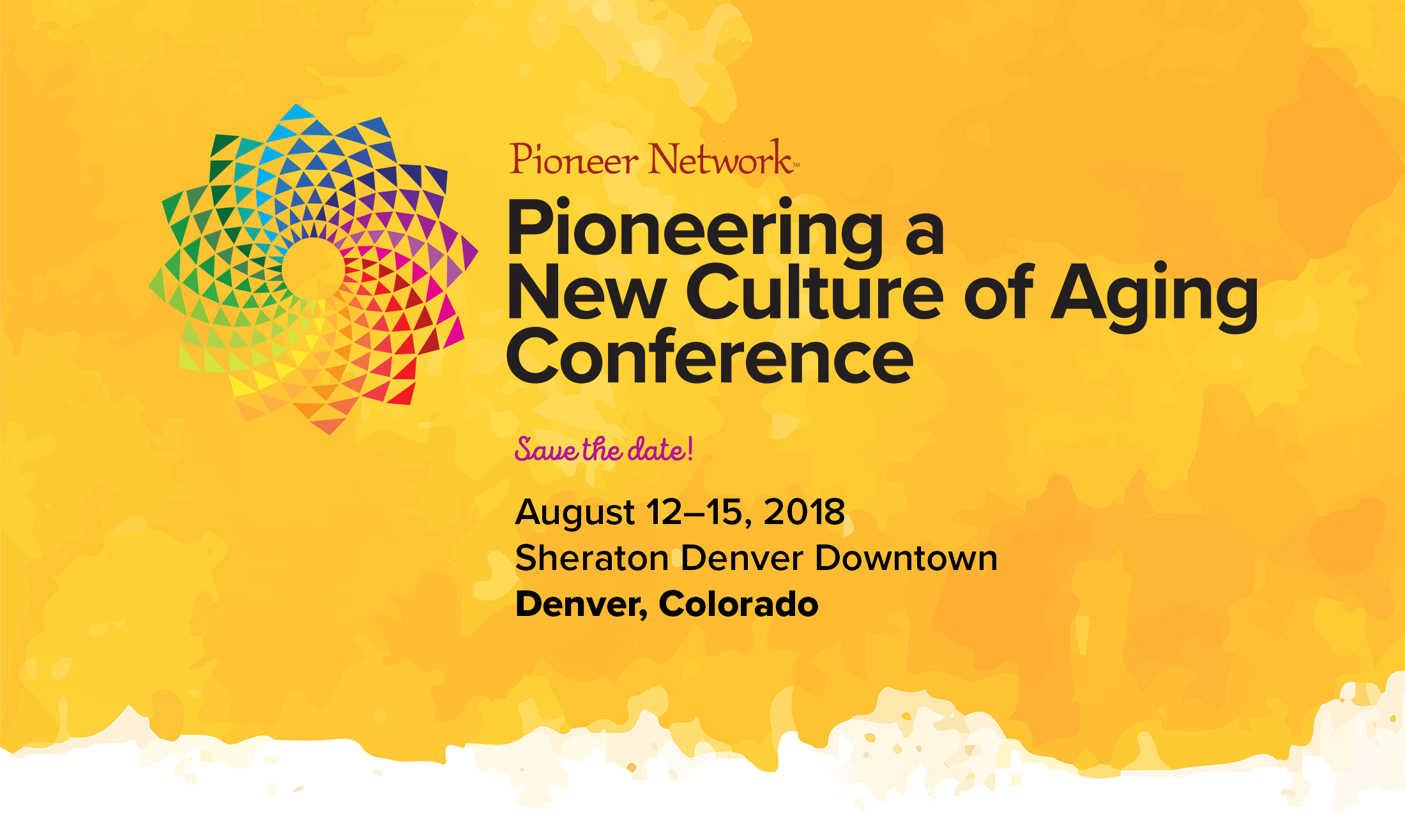
Pioneer Network Intensives are a deep dive into one topic. Experienced Guides, who can demonstrate with hands-on practical approaches, will get to the heart and soul of the subject matter, while giving you the nuts and bolts that you can take home and use immediately. These Workshop Intensives are designed especially for YOU — the Pioneer attendee. So prepare for a session of intense interactive learning experiences.
| Full-day Intensives – Wednesday August 15, 2018, 8:00 AM – 4:30 PM |
Intensive 1
From Awareness to Advocacy: From Ageism to Age Pride
Guides: Ashton Applewhite, Author and Activist
Mel Coppola, Founder and President, Hearts in Care, LLC
Sr. Imelda Maurer, cdp, In Service to Our Own
Carmen Bowman, MHS, BSW, Owner, Edu-Catering
Governor’s Square 15
Each of us carries negative attitudes about aging and about older adults. We are not born with this prejudice, but from a very young age we are immersed in a culture that says “old” means loss; “old” means less; “old” means ‘not as good as young.’ These attitudes become part of our identity unless we decide to challenge them. Ageism is no more inevitable than racism or sexism. In this Intensive, we will probe what these buried biases are within us and how they impact our work place: its culture, the assumptions underlying policies and procedures, the services we provide and the milieu in which they are provided, and finally, the impact on the well-being of elders when we address and eliminate newly discovered aspects of workplace ageism. With this new awareness and knowledge, we will possess workplace tools that will enable us to move from awareness to advocacy, true pioneers, to end society’s last acceptable prejudice.
Objectives:
- Identify at least three examples of a new awareness of one’s own internal ageism and of external ageism that was brought to consciousness during the session.
- List at least three ways that ageist biases impact the workplace culture and the services provided.
- Develop an initial ‘blueprint’ for addressing ageism in one’s workplace, listing at least three attitudes, issues, policies or practices that will be addressed and by whom.
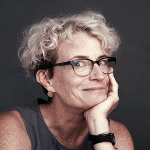 Author and activist Ashton Applewhite is the author of This Chair Rocks: A Manifesto Against Ageism. In 2016, she joined PBS site Next Avenue’s annual list of 50 Influencers in Aging as their Influencer of the Year. Ashton has been recognized by the New York Times, National Public Radio, and the American Society on Aging as an expert on ageism. She blogs at This Chair Rocks, has written for Harper’s, Playboy, and the New York Times, and is the voice of Yo, Is This Ageist? Ashton speaks widely, at venues that have ranged from universities and community centers to the TED mainstage and the United Nations. Ashton is a leading spokesperson for a movement to mobilizes against discrimination on the basis of age, and was a Keynote Speaker at the 2017 Pioneer Network Conference.
Author and activist Ashton Applewhite is the author of This Chair Rocks: A Manifesto Against Ageism. In 2016, she joined PBS site Next Avenue’s annual list of 50 Influencers in Aging as their Influencer of the Year. Ashton has been recognized by the New York Times, National Public Radio, and the American Society on Aging as an expert on ageism. She blogs at This Chair Rocks, has written for Harper’s, Playboy, and the New York Times, and is the voice of Yo, Is This Ageist? Ashton speaks widely, at venues that have ranged from universities and community centers to the TED mainstage and the United Nations. Ashton is a leading spokesperson for a movement to mobilizes against discrimination on the basis of age, and was a Keynote Speaker at the 2017 Pioneer Network Conference.
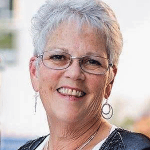 Mel Coppola, President and Owner of Hearts in Care, LLC, is a passionate and motivational presenter, team builder, facilitator, educator and consultant in the field of aging and care. Through presentations, articles, coaching and trainings to organizations across the spectrum of care, Mel spreads the word that aging and care CAN be different, no matter someone’s cognitive and/or physical abilities. In addition to being an active Eden Educator and Mentor, she is a Florida licensed Assisted Living Administrator and serves on the Executive and Steering Committees for Florida Pioneer Network, the state’s culture change coalition.
Mel Coppola, President and Owner of Hearts in Care, LLC, is a passionate and motivational presenter, team builder, facilitator, educator and consultant in the field of aging and care. Through presentations, articles, coaching and trainings to organizations across the spectrum of care, Mel spreads the word that aging and care CAN be different, no matter someone’s cognitive and/or physical abilities. In addition to being an active Eden Educator and Mentor, she is a Florida licensed Assisted Living Administrator and serves on the Executive and Steering Committees for Florida Pioneer Network, the state’s culture change coalition.
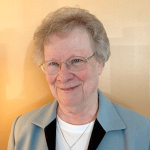 Sr. Imelda Maurer brings experiences as an educator, teaching high school math and science for 15 years. She worked as community organizer in both health and labor issues among textile workers and agricultural workers. As an advocate with a passion for issues around aging and aging services, following health-related experiences with her parents, she began her work in this field 30 years ago as a long-term care ombudsman. Looking for a more systemic approach to these issues, she gained a Master’s Degree in Applied Gerontology and is licensed as a nursing home administrator. She continues to press for transformative culture change through writing, speaking and consultation.
Sr. Imelda Maurer brings experiences as an educator, teaching high school math and science for 15 years. She worked as community organizer in both health and labor issues among textile workers and agricultural workers. As an advocate with a passion for issues around aging and aging services, following health-related experiences with her parents, she began her work in this field 30 years ago as a long-term care ombudsman. Looking for a more systemic approach to these issues, she gained a Master’s Degree in Applied Gerontology and is licensed as a nursing home administrator. She continues to press for transformative culture change through writing, speaking and consultation.
 Carmen Bowman is a consultant, trainer, author and owner of Edu-Catering: Catering Education for Compliance and Culture Change turning her former role of regulator into educator. Carmen was a Colorado state surveyor for nine years, a policy analyst with CMS Central Office where she taught the national Basic Surveyor Course and the first certified activity professional to be a surveyor. As a contractor to CMS, Carmen co-developed the Artifacts of Culture Change measurement tool, authored the background papers for and facilitated both Creating Home national symposiums sponsored by CMS and the Pioneer Network. She facilitated the Pioneer Network Task Forces that developed the new Dining Practice Standards and subsequent Toolkit. She serves on the Pioneer Network Policy committee which meets with CMS Division of Nursing Homes quarterly. She was invited to give comment on draft CMS regulations by Pioneer Network and the Eden Alternative. She co-authored The Power of Language to Create Culture, Eliminating Alarms and Preventing Falls by Engaging with Life, and facilitated the first Surplus Safety Symposium. Carmen has a Master’s degree in Healthcare Systems, a Bachelor’s in Social Work and German, is a Certified Eden Associate and Eden Mentor, Certified Validation Worker, Group Practitioner and recently Presenter. She co-founded the Colorado Culture Change Coalition, and with Action Pact has authored eight culture change workbooks plus hosts a monthly web culture change talk show called Conversations with Carmen. Currently she is writing her ninth book for Health Professions Press Changing Culture with Little Worry about Money or Regulation.
Carmen Bowman is a consultant, trainer, author and owner of Edu-Catering: Catering Education for Compliance and Culture Change turning her former role of regulator into educator. Carmen was a Colorado state surveyor for nine years, a policy analyst with CMS Central Office where she taught the national Basic Surveyor Course and the first certified activity professional to be a surveyor. As a contractor to CMS, Carmen co-developed the Artifacts of Culture Change measurement tool, authored the background papers for and facilitated both Creating Home national symposiums sponsored by CMS and the Pioneer Network. She facilitated the Pioneer Network Task Forces that developed the new Dining Practice Standards and subsequent Toolkit. She serves on the Pioneer Network Policy committee which meets with CMS Division of Nursing Homes quarterly. She was invited to give comment on draft CMS regulations by Pioneer Network and the Eden Alternative. She co-authored The Power of Language to Create Culture, Eliminating Alarms and Preventing Falls by Engaging with Life, and facilitated the first Surplus Safety Symposium. Carmen has a Master’s degree in Healthcare Systems, a Bachelor’s in Social Work and German, is a Certified Eden Associate and Eden Mentor, Certified Validation Worker, Group Practitioner and recently Presenter. She co-founded the Colorado Culture Change Coalition, and with Action Pact has authored eight culture change workbooks plus hosts a monthly web culture change talk show called Conversations with Carmen. Currently she is writing her ninth book for Health Professions Press Changing Culture with Little Worry about Money or Regulation.
Intensive 2
Navigating the Mega Rule: Building a Highly Involved Culture of Critical Thinkers
Guides:
Megan Hannan, Executive Leader, Action Pact
LaVrene Norton, Founder, Action Pact
Gloria Blackman, Nurse Consultant, Action Pact
Linda Bump, Consultant, Action Pact
Glenn Blacklock, MA, LNHA
Governor’s Square 14
Though diverse and varied, much of the new Mega Rule process focuses on engaging hands-on staff in all disciplines to share what they know about survey requirements, the organization, the residents, and the services provided. Together we’ll discuss and learn tools to enable teams with critical thinking skills that will strengthen your organizations’ abilities to confidently navigate the new survey process. Here more from the Action Plan team: https://www.pioneernetwork.net/grow-a-culture-of-critical-thinking-to-calm-survey-angst/
Objectives:’
- Identify your questions and concerns about the new rules as well as the experience and knowledge you already possess.
- Describe how culture change values and practice, QAPI, and smaller constant teams enable team members to articulate what they know about residents, the care they receive and participate deeply in problem solving.
- Recognize that the components of critical thinking and high involvement will prepare your organization in responding to the new survey process.
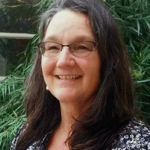 Megan Hannan is a nationally recognized speaker and consultant in aging, long-term care, culture change, and dementia. She has provided insight and support around quality of life, dementia care, leadership, and change facilitation for over 25 years. As a change leader with Action Pact, she works directly with organizations on the process of deep change.
Megan Hannan is a nationally recognized speaker and consultant in aging, long-term care, culture change, and dementia. She has provided insight and support around quality of life, dementia care, leadership, and change facilitation for over 25 years. As a change leader with Action Pact, she works directly with organizations on the process of deep change.
Megan has participated with elders, families and staff to shape innovative environments for people living in long-term care. She has presented numerous state, national and international conferences including the World Congress on Alzheimer’s. Megan has a long-standing involvement with the Pioneer Network, has led the education committee and served as President of the Board. Megan developed PersonFirst®, Action Pact’s signature train-the-trainer program. Over 60 organizations continue to use PersonFirst® to grow and sustain their person-directed culture. Known for her skills in teaching others to hear the voice of elders, she brings great information, great resources and great ideas!
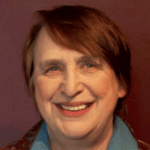 LaVrene Norton is Executive Leader and a founder of Action Pact, developer of the Household Model in Long-term care. As a pioneer and champion of the Household Model, LaVrene has been guiding organizations on their culture change journeys since 1984. She is recognized as one of the nation’s leading organizational change facilitators in long-term care and has taken her expertise to Ireland and Australia as well. She assists organizations in developing learning experiences that grow critical thinking, and is known for her workshops on hiring staff via assessment centers and coaching conflict management skills for household teams.
LaVrene Norton is Executive Leader and a founder of Action Pact, developer of the Household Model in Long-term care. As a pioneer and champion of the Household Model, LaVrene has been guiding organizations on their culture change journeys since 1984. She is recognized as one of the nation’s leading organizational change facilitators in long-term care and has taken her expertise to Ireland and Australia as well. She assists organizations in developing learning experiences that grow critical thinking, and is known for her workshops on hiring staff via assessment centers and coaching conflict management skills for household teams.
LaVrene has led the Action Pact team in the development of a deep catalog of culture change and Household Model curriculum, literature, workbooks and DVDs. She co-authored Action Pact’s signature book, In Pursuit of the Sunbeam, with Steve Shields. Additionally, she is in demand as a speaker and has a long list presentations in her vitae.
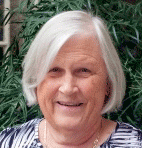 Linda Bump, Action Pact Consultant, is a Registered Dietitian and Licensed Nursing Home Administrator with a passion for resident choice and quality of life and a particular focus on the kitchen as the heart of the home.Linda authored and presented the white paper, “The Deep Seated Issue of Choice,” for the CMS/Pioneer Network’s Creating Home II national symposia on Culture Change and the Food Dining Requirements. Linda was also a member of the Pioneer Network Task Force that developed the “New Dining Practice Standards” as well as the toolkit, which helps homes implement the new standards.
Linda Bump, Action Pact Consultant, is a Registered Dietitian and Licensed Nursing Home Administrator with a passion for resident choice and quality of life and a particular focus on the kitchen as the heart of the home.Linda authored and presented the white paper, “The Deep Seated Issue of Choice,” for the CMS/Pioneer Network’s Creating Home II national symposia on Culture Change and the Food Dining Requirements. Linda was also a member of the Pioneer Network Task Force that developed the “New Dining Practice Standards” as well as the toolkit, which helps homes implement the new standards.
As an administrator, she guided four organizations through transformations to a social model of care. She has extensive experience as both an internal and external consultant in nursing homes and has provided education on culture change to 60+ nursing homes through her work with Action Pact since 1999. She has developed and led numerous workshops for Action Pact.
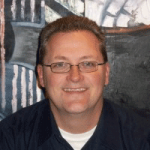 Glenn Blacklock, LNHA: With a Master of Arts, Leisure Studies with emphasis in Therapeutic Recreation from the University of Iowa, Glenn has challenged what it means to be ‘frail’. In his 15 years as an Administrator, Glenn explored the cutting edge of culture change and became known nationally for his work bringing normal life pursuits to nursing home residents. He facilitated residents in their ventures outdoors and in. Residents climbed trees, navigated rivers, went fishing and motorcycling; engaged in entertaining others with their talents, and pursued wellness through guided self-help strategies.
Glenn Blacklock, LNHA: With a Master of Arts, Leisure Studies with emphasis in Therapeutic Recreation from the University of Iowa, Glenn has challenged what it means to be ‘frail’. In his 15 years as an Administrator, Glenn explored the cutting edge of culture change and became known nationally for his work bringing normal life pursuits to nursing home residents. He facilitated residents in their ventures outdoors and in. Residents climbed trees, navigated rivers, went fishing and motorcycling; engaged in entertaining others with their talents, and pursued wellness through guided self-help strategies.
In his position with Action Pact, Glenn has encouraged his clients to look at their environments through residents’ eyes – where a good life every day is still within their reach. To that end, he leads the workshops “Creating the Climate for Vibrant Living” and “Vibrant Living for Men,” among others.
Gloria Blackmon, BSN, RN-BC, DNS-CT ; Chief Nursing Officer, Action Pact. Gloria’s expertise and leadership skills have frequently been called on for leading communities into health, compliance, and stability, with a focus on resident-centered care. She has held Director of Nursing positions from the early 90’s. Since 2011 Gloria, as DON, guided an interdisciplinary team, managed the educational process, interviewed and hired staff, oversaw orientation for staff and residents, implemented empowered self-scheduling and decreased psychotropic medication use — all while leading the transformation to a Household Model an addition of six skilled nursing households of 14 residents each.
Her additional role for the past 20 years – in risk management and as a medical legal consultant, has been in growing and strengthening critical thinking skills in all levels of staff. Since coming to Action Pact, Gloria has led the Nurse Leader intensive and one-day workshops, as well as developing, coaching and consulting with nursing staff in new household communities.
Intensive 3
Giving Back, Not Giving Up: A Heart to Serve in Your Community
Guides:
Mike Wasserman, CEO, Rockport Healthcare Services
Matthew Lysobey, Chief Community Integration Officer
Governor’s Square 16
How can elders find ongoing purpose – and reasons to live? In more than 70 care communities across Rockport Healthcare Services family, people are joining together in community service. The results are that low-income people are receiving meals and senior dogs are getting second leases on life – all because of elders using their “heart to serve” and learning new skills through volunteering. In this session, we’ll share mounting clinical evidence that a sense of purpose can help improve health and well-being, including among people with dementia, and we’ll help you plan a A Heart to Serve program in your community
Objectives:
1. Introduce what volunteer service by people living in care communities is accomplishing, including among elders with a wide range of physical and cognitive situations.
2. Compare what differences A Heart to Serve programs make to the lives and health of elders giving back to their communities through volunteering
3. Define how A Heart to Serve and other community integration efforts can advance social impact and bring positive attention to the importance of elders and care communities continuing to give back.
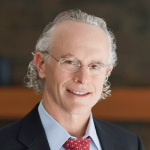 Mike Wasserman is a nationally recognized expert in geriatrics, long-term care, purposeful living among older adults, and managed care. In 2005, he was the lead delegate from Colorado to the White House Conference on Aging. In 2008, Wasserman co-founded MESA (Medicare Experts and Senior Access), a multi-year grant program supported by the Colorado Health Foundation to train primary care physicians to effectively care for people who are covered by Medicare. Wasserman lectures and publishes on a variety of topics, including geriatrics, long-term care, purposeful living among older adults, managed care, quality improvement, geriatric workforce issues, healthy aging, Alzheimer’s disease and other forms of dementia, and the business of healthcare, including geriatric practice management. In 2015, he joined the David Geffen School of Medicine at UCLA as assistant clinical professor. In 2016, Springer published his book “The Business of Geriatrics,” which details how to succeed in geriatrics in today’s healthcare marketplace. In 2017, Wasserman co-edited the Springer-published book “Primary Care for Older Adults: Models and Challenges,” which provides a comprehensive and systematic state-of-the-science review of major primary care delivery models, how they address specific needs of older adults, and available evidence for their efficacy.
Mike Wasserman is a nationally recognized expert in geriatrics, long-term care, purposeful living among older adults, and managed care. In 2005, he was the lead delegate from Colorado to the White House Conference on Aging. In 2008, Wasserman co-founded MESA (Medicare Experts and Senior Access), a multi-year grant program supported by the Colorado Health Foundation to train primary care physicians to effectively care for people who are covered by Medicare. Wasserman lectures and publishes on a variety of topics, including geriatrics, long-term care, purposeful living among older adults, managed care, quality improvement, geriatric workforce issues, healthy aging, Alzheimer’s disease and other forms of dementia, and the business of healthcare, including geriatric practice management. In 2015, he joined the David Geffen School of Medicine at UCLA as assistant clinical professor. In 2016, Springer published his book “The Business of Geriatrics,” which details how to succeed in geriatrics in today’s healthcare marketplace. In 2017, Wasserman co-edited the Springer-published book “Primary Care for Older Adults: Models and Challenges,” which provides a comprehensive and systematic state-of-the-science review of major primary care delivery models, how they address specific needs of older adults, and available evidence for their efficacy.
Matthew Lysobey, MPH, LNHA, is committed to finding opportunities for people to experience the power of purpose through selfless service while living in skilled nursing facilities and assisted living facilities. Lysobey is fulfilling that personal and professional commitment as chief community integration officer for Rockport Healthcare Services, where he leads A Heart to Serve. Lysobey earned a master’s degree in public health at San Diego State University in 1997. Since then, he has dedicated himself to improving the lives of people living in long-term care centers. Lysobey started as a certified nursing assistant in a nursing home and has also served as an administrator and regional vice president for numerous skilled nursing facilities.
Intensive 4
The Role of the Gerontological Nurse in Person-Centered Care
Guide:
Mary Tellis-Nayak, VP Quality Initiatives, MyInnerView
Governor’s Square 9
This session will provide the Gerontological Nurse with information regarding the role of the Gerontological Nurse in person centered care regardless of the care environment. This session will provide research-based information preparing the Gerontological Nurse to develop and implement a person-centered approach to the care and concern of the aging population.
Objectives:
- Participants will be able to describe what person-centered care means.
- Participants will be able to identify three steps in the development of a person-centered care plan (growth plan).
- Participants will be able to explain the difference between a Gerontological Nurse leader and the boss.
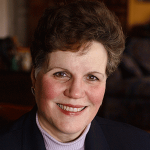 Mary Tellis-Nayak taught school for nine years before pursuing a career in nursing. She has worked in most areas of care for the elderly: as a bedside caregiver in a hospital-based SNF, a manager of a home health agency, a DON in a freestanding nursing home, and the chief clinician in a large multi community organization. She was the president/CEO of the American College of Health Care Administrators. Throughout her career, she has led quality improvement programs throughout long-term care. In leading JCAHO’s program for long-term care accreditation for ten years, she developed the first set of standards for dementia care units, subacute care, and long-term care pharmacies. Mary is currently the Vice President of Quality Initiatives for MyInnerView, a product of the NRC Health. In this role she works with customers to develop plans based on the results of their surveys. She also speaks nationally on topics related to quality in the post-acute continuum. She has been on the editorial board of Advances in Post-Acute Care and served on the Boards for Caring for the Ages and the American Medical Directors Association Foundation as well as the for the State Veterans Homes Foundation. She was on the advisory board for the Planetree Continuing Care initiative and also served on the Planetree Designation Committee for Hospitals. Tellis-Nayak earned an MSN in gerontological nursing from Rush University in Chicago and an MPH from the University of Illinois at Chicago. She received an honorary doctorate in Human Letters from A. T. Stills University as a result of her work in Long-Term Care. With her husband, Dr. V. Tellis-Nayak, Mary won the American Health Care Association’s lifetime achievement award – Champion of Quality – in 2013. They have recently published a book: The Return of Compassion to Health Care.
Mary Tellis-Nayak taught school for nine years before pursuing a career in nursing. She has worked in most areas of care for the elderly: as a bedside caregiver in a hospital-based SNF, a manager of a home health agency, a DON in a freestanding nursing home, and the chief clinician in a large multi community organization. She was the president/CEO of the American College of Health Care Administrators. Throughout her career, she has led quality improvement programs throughout long-term care. In leading JCAHO’s program for long-term care accreditation for ten years, she developed the first set of standards for dementia care units, subacute care, and long-term care pharmacies. Mary is currently the Vice President of Quality Initiatives for MyInnerView, a product of the NRC Health. In this role she works with customers to develop plans based on the results of their surveys. She also speaks nationally on topics related to quality in the post-acute continuum. She has been on the editorial board of Advances in Post-Acute Care and served on the Boards for Caring for the Ages and the American Medical Directors Association Foundation as well as the for the State Veterans Homes Foundation. She was on the advisory board for the Planetree Continuing Care initiative and also served on the Planetree Designation Committee for Hospitals. Tellis-Nayak earned an MSN in gerontological nursing from Rush University in Chicago and an MPH from the University of Illinois at Chicago. She received an honorary doctorate in Human Letters from A. T. Stills University as a result of her work in Long-Term Care. With her husband, Dr. V. Tellis-Nayak, Mary won the American Health Care Association’s lifetime achievement award – Champion of Quality – in 2013. They have recently published a book: The Return of Compassion to Health Care.
Site Visits
Several site visits are available during the Intensive Sessions on Wednesday, August 15. Learn more here.
| ½ Day Intensives – Wednesday, August 15, 2018, 8:00 AM – 11:45 AM |
Intensive 5
Compassionate Touch Specialist Training
Guides:
Pam Brandon, President/Founder, AGE-u-cate
V’Ann Giuffre, Vice President of Operations, AGE-u-cate Training Institute
Governor’s Square 12
Compassionate Touch is an approach combining skilled touch with specialized communication that’s shown to be a powerful nonpharmacological tool that reduces behavioral expressions in people with dementia and end-of-life while strengthening care partner relationships. This interactive 3-hour workshop will enable its participants to articulate why skilled touch is effective in dementia care, apply non-verbal communication techniques to relate to people with middle to advanced dementia, correctly perform skilled touch techniques and identify distress that triggers behavioral expression. At the conclusion of this session, attendees will obtain their Certification in Compassionate Touch.
Objectives:
- Define Compassionate Touch® (CT) is as it relates to person-centered dementia care.
- Perform CT skilled touch techniques, demonstrating application of guidelines.
- Define behavioral expression
- Discuss the role of a CT Specialist
Pam Brandon is President and Founder of AGE-u-cate® Training Institute based in Dallas-Fort Worth. Drawing on over 20 years of personal and professional experience in caregiver education, Pam is passionate about embracing positive change in the field of aging training. A strong believer in hands-on learning, Pam is the creator of the Dementia Live™ and Aging Live™ sensitivity awareness training programs that are fast gaining worldwide interest. A professional speaker, trainer and facilitator, Pam directs and leads the AGE-u-cate® team of professionals in creating innovative, evidenced based and strong outcome driven programs for long term care providers, healthcare, the public and nonprofit sectors. She is excited to be sharing innovative tools for dementia care professionals and the work that AGE-u-cate® is doing in their work with Texas Woman’s University and helping these programs become integrated and sustainable within their organizations.
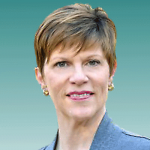 An education specialist in school, business and conference settings for over 20 years, V’Ann Giuffre finds great satisfaction in making learning come alive for people, whether aged 3 or 93. Her energized teaching style compliments her role as Master Trainer for Dementia Live™ and Compassionate Touch® allowing her to travel throughout the US to train care providers on proper implementation of our dynamic programs to improve dementia care. Her executive role with AGE-u-cate Training Institute allows her to work directly with senior care providers, clinicians and other trainers on a daily basis, and her background brings a unique perspective to the AGE-u-cate team as we continue our development of innovative solutions for aging education.
An education specialist in school, business and conference settings for over 20 years, V’Ann Giuffre finds great satisfaction in making learning come alive for people, whether aged 3 or 93. Her energized teaching style compliments her role as Master Trainer for Dementia Live™ and Compassionate Touch® allowing her to travel throughout the US to train care providers on proper implementation of our dynamic programs to improve dementia care. Her executive role with AGE-u-cate Training Institute allows her to work directly with senior care providers, clinicians and other trainers on a daily basis, and her background brings a unique perspective to the AGE-u-cate team as we continue our development of innovative solutions for aging education.
Intensive 6
Pioneering Solutions to the Workforce Crises
Guides:
Anna Ortigara, Consultant, PHI
Sue Misiorski, V. P. Workforce Innovations, PHI
Governor’s Square 11
Everyone aims to deliver high quality, person-centered care, yet without the people to fill these jobs, and the funding to sustain the broader long-term care system, achieving this goal is impossible. Across the country, employers are struggling to find and keep enough direct care workers to meet consumer needs. With increasing frequency, we are hearing stories of providers who have closed care settings and halted the acceptance of new clients due to worker shortages. PHI — the nation’s leading resource on the direct care workforce will present this intensive dedicated to exploring multiple facets of the workforce crisis including facts and trends, business models and their impact on job quality, stories from the field, and pioneering practices that have demonstrated results. The Nine elements of quality jobs will be explored to support a transformed workforce.
Objectives:
- Review current state of LTC workforce
- Discuss 9 elements of quality jobs
- Explore building practices which support transformation and an empowered workforce
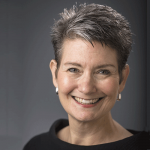 According to Anna Ortigara, she has had the honor and fun of being deeply immersed in cultural transformation since the early 1980s. Initially it focused on transforming dementia care in three key areas, meaningful life and engagement, environments that support abilities and strengths, and staff education for effective care partnerships. Then a lot of work around empowering staff (nurses and direct care staff), and then at The Green House Project, and now at PHI which focusses on empowered workforces through coaching leaders. Also active with Pioneer Network and has attended every conference since the first one in Rochester (except the cruise year).
According to Anna Ortigara, she has had the honor and fun of being deeply immersed in cultural transformation since the early 1980s. Initially it focused on transforming dementia care in three key areas, meaningful life and engagement, environments that support abilities and strengths, and staff education for effective care partnerships. Then a lot of work around empowering staff (nurses and direct care staff), and then at The Green House Project, and now at PHI which focusses on empowered workforces through coaching leaders. Also active with Pioneer Network and has attended every conference since the first one in Rochester (except the cruise year).
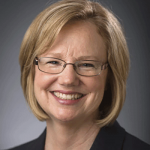 Sue Misiorski served as VP at Apple Health Care and at Genesis Corporation where she led deep culture change in care practices across the organization’s nursing homes. Co-founder and first president of the Pioneer Network she has worked to achieve culture change through work with a wide range of long term care organizations continuing up to this time.
Sue Misiorski served as VP at Apple Health Care and at Genesis Corporation where she led deep culture change in care practices across the organization’s nursing homes. Co-founder and first president of the Pioneer Network she has worked to achieve culture change through work with a wide range of long term care organizations continuing up to this time.
Intensive 7
Preferences for Everyday Living Inventory (PELI) Bootcamp: The Foundation for Implementing Preference Based, Person-Centered Care in Nursing Communities
Guides:
Karen Eshraghi, Quality Improvement Project Manager, Abramson Center for Jewish Life
Victoria Crumbie, Director of Recreation, Abramson Center for Jewish Life
Alexandra Heppner, Project Manager, Miami University
Governor’s Square 10
In this interactive workshop, participants will learn how to implement preference based, person-centered care using the Preferences for Everyday Living Inventory (PELI). The session will provide an introduction to the PELI preference assessment tool, and present evidence-based research supporting use of the PELI in nursing homes and assisted living communities. Participants will learn how to conduct PELI interviews with residents/clients and engage with family members if needed. In addition, we will discuss ways to engage staff in the process. After receiving instruction, participants will break into pairs and practice using the interview tool.
Objectives:
- Discuss the background and development of the PELI, review PELI Items, and strategy for getting started.
- Provide instruction about how to conduct PELI interviews with residents
- Provide instruction about how to conduct PELI interviews with residents and their family members and how to engage staff.
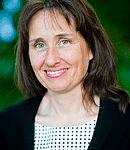 Karen Eshraghi, MSW, received her Bachelor’s in Social Work from Spalding University and her Master’s in Social Work from Temple University. In Mrs. Eshraghi’s three-year tenure as project manager for a NIH-study “Assessing the Preferences for Everyday Living in the Nursing home” (2011-2014) she developed expertise in the assessment, training, and measurement of important preferences of nursing home residents. She was a contributing author on multiple publications related to person-centered care and has provided numerous presentations on this topic.
Karen Eshraghi, MSW, received her Bachelor’s in Social Work from Spalding University and her Master’s in Social Work from Temple University. In Mrs. Eshraghi’s three-year tenure as project manager for a NIH-study “Assessing the Preferences for Everyday Living in the Nursing home” (2011-2014) she developed expertise in the assessment, training, and measurement of important preferences of nursing home residents. She was a contributing author on multiple publications related to person-centered care and has provided numerous presentations on this topic.
As the Director of Recreation for a skilled nursing home serving 324 residents, Victoria Crumbie is responsible for continued successful implementation of the PELI. She provides training and on-going support to staff to ensure competency in facilitating the PELI interview and coordinates communication with family or proxy responders. Ms.Crumbie also works closely with the Quality Improvement and Research departments on new innovations to incorporate resident preferences into the care plan process and enhance communication of preferences across various disciplines.
Alexandra Heppner is currently the Project Manager for the PELI-Can Project tasked with assisting Ohio nursing home providers implementing the Preferences for Everyday Living Inventory (PELI). She communicates with nursing home providers to identify barriers and facilitators of PELI implementation and manages the projects “helpline” to respond to provider inquiries. Ms. Heppner also assists with the development of training videos and tip sheets to aid providers. Additionally, she manages the project’s social media accounts and electronic newsletter for dissemination of implementation tips, updates, and related information.
Intensive 8
LTC Leader’s Guide to High Performance: Doing Better Together
Guides:
Barbara Frank, Co-founder, B&F Consulting
Cathie Brady, Co-founder, B&F Consulting
David Farrell, Vice President of Sub-Acute Operations, Telecare
Governor’s Square 17
Learn the leadership practices and systems for your organization to succeed with the new requirements for participation. This highly interactive session describes how to develop the necessary systems, staff, and processes for your organization to deliver high quality individualized care for each resident. Outlined here are the critical steps needed to achieve and sustain staff stability, prevent avoidable hospitalizations and antipsychotics, and provide high quality person-centered care, even in struggling care communities. This practical session details how to implement well-established, interconnected practices that engage staff and promote teamwork to achieve the highest practicable well-being of your residents, and bring out the best in your staff. The presenters draw from their book, A Long-Term Care Leader’s Guide to High Performance: Doing Better Together (2018 Health Professions Press), in sharing ideas you can immediately put into practice.
Objectives:
- Identify key leadership practices necessary for success in meeting the requirements for participation.
- Describe elements of a communication infrastructure to support the teamwork and communication throughout an organization that helps staff deliver quality person-centered care and prevents avoidable declines.
- Describe how to use high-involvement processes for continuous performance improvement.
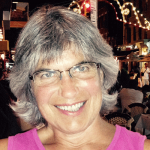
Barbara Frank, with B&F Consulting co-founder, Cathie Brady helps LTC communities be better places to live and work by improving staff stability and engagement, care outcomes, and overall organizational performance. Barbara started her career working for 16 years at the National Citizens’ Coalition for Nursing Home Reform in Washington, D.C. She helped establish the national network of state and local ombudsman programs. Barbara directed the 1985 study, A Consumer Perspective on Quality Care: The Residents’ Point of View. She facilitated the Campaign for Quality Care, which developed the consensus for OBRA 1987, the Nursing Home Reform Law. Barbara facilitated the first Pioneer Network gathering in 1997, and in 2005 she facilitated the St. Louis Accord, a national gathering of providers, consumers, regulators, and quality improvement organizations that came together to improve clinical outcomes through staff stability and culture change.
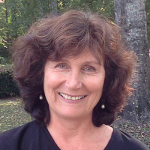
Cathie Brady, with B&F Consulting co-founder Barbara Frank, helps LTC communities be better places to live and work by improving staff stability and engagement, care outcomes, and overall organizational performance. B&F focuses on the how of change. Cathie has more than 30 years of experience in executive leadership roles providing services and advocating for older adults in a variety of settings. She was the Executive Director of the Department of Aging Services for the city of Bristol, Connecticut, where she revitalized programming and participation through development of award-winning, life enriching programs. For 10 years, she served as the Regional LTC Ombudsman for Eastern Connecticut and developed educational programs to introduce her nursing homes to culture change.
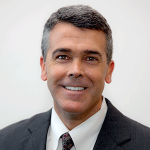
David Farrell has in-depth, diverse healthcare operations management and quality improvement experience. With his track record of success, he is a nationally recognized leader in quality improvement, workforce retention, and culture change. He has advised the Centers for Medicare and Medicaid Services on quality improvement and staff engagement. At Telecare, David oversees long-term care services for clients with mental illness, supports staff stability and engagement, and leads efforts for person-centered care and quality improvement. Consistently implemented evidence-based solutions to meet and exceed customer service standards, clinical goals and financial objectives. Leadership achievements in regulatory compliance, marketing, risk management and turnaround situations.
| ½ Day Intensives – Wednesday, August 15, 2018, 12:45 PM – 4:30 PM |
Intensive 9
Cross-Cultural Experiences of Legacy Art Work with Elders in Taiwan
Guides:
Moony Kang, CEO, New and Alive Art Service Company
Wan-Yu (Chenelle) Lin, Chair, Department of Elderly Creative Industry Management, Tajen University
Governor’s Square 11
The Legacy Art Work (LAW) program in Taiwan, based on the concept of using the arts to help senior citizens, was originally brought over to Taiwan from the United States. The LAW program allows elders to create and to use the visual arts to record life as they experience it, past, present, and future. With professional instructors to guide group activities and volunteers to work with them individually, participants can have more positive interaction with their loved ones and other young people, and they can use art to express a lifetime’s worth of experiences and memories with greater quality of life.
Objectives:
- The participant will be able to demonstrate how to create a person-centered care program.
- The participant will be able to plan and apply a cross-cultural program for elders based on the Five Key Elements of Legacy Art Work’s group.
- The participant will be able to evaluate the Legacy Art Work using assessment and rating instruments shared.
 Moony Kang is the co-founder & CEO of New & Alive Art Services (NAAS). NAAS is the premiere social enterprise in Taiwan with over a decade experience delivering an arts therapist training and certification for working with the elderly. Kang graduated with a B.S. from the Department of Social Work at National Taiwan University and is a licensed social worker. Kang has over 18 years of experience in elder service, she was previously a supervisor working with social workers at Taipei Family Caregiver Association (Taiwan). As the CEO of NAAS and Chief Elder Art Specialist of Legacy Art Work cooperated with Shin Kong Life Foundation, she actively calls action to the society to value elders’ mental health. By designing programs that have elders to make friends, sharing life stories and transform the stories into art works, the elders change their mind toward art work, from reluctant to enjoy; change their attitude from hesitate to open on sharing stories. Kang also dedicated in training art therapist to operate Legacy Art Work programs, and has trained over 228 art therapists all over Taiwan.
Moony Kang is the co-founder & CEO of New & Alive Art Services (NAAS). NAAS is the premiere social enterprise in Taiwan with over a decade experience delivering an arts therapist training and certification for working with the elderly. Kang graduated with a B.S. from the Department of Social Work at National Taiwan University and is a licensed social worker. Kang has over 18 years of experience in elder service, she was previously a supervisor working with social workers at Taipei Family Caregiver Association (Taiwan). As the CEO of NAAS and Chief Elder Art Specialist of Legacy Art Work cooperated with Shin Kong Life Foundation, she actively calls action to the society to value elders’ mental health. By designing programs that have elders to make friends, sharing life stories and transform the stories into art works, the elders change their mind toward art work, from reluctant to enjoy; change their attitude from hesitate to open on sharing stories. Kang also dedicated in training art therapist to operate Legacy Art Work programs, and has trained over 228 art therapists all over Taiwan.
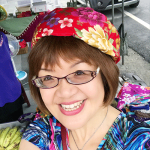 Wan-Yu (Chenelle) Lin earned her Ph.D. in Leadership & Education, specialization in Human Resource Development from Barry University, FL. USA. She is an assistant professor of Healthcare Administration at Tajen University, Taiwan, and a faculty member of the Music Care program supported by the Japan Music Care Association. She is a supervisor working with a group of multidiscipline professionals at Pingtung Alzheimer’s Disease Association (Taiwan).
Wan-Yu (Chenelle) Lin earned her Ph.D. in Leadership & Education, specialization in Human Resource Development from Barry University, FL. USA. She is an assistant professor of Healthcare Administration at Tajen University, Taiwan, and a faculty member of the Music Care program supported by the Japan Music Care Association. She is a supervisor working with a group of multidiscipline professionals at Pingtung Alzheimer’s Disease Association (Taiwan).
Intensive 10
Person-Centered Life in Assisted Living: Navigating a Shifting Landscape
Guides:
Juliet Holt-Klinger, Senior Director of Dementia Care and Program, Brookdale Senior Living
Jeanne Heid-Grubman, Administrator, Village at Victory Lakes
Governor’s Square 12
The assisted living model was founded on many of the principles of person-centeredness – focusing on each resident as a unique individual and providing a home, not just a place to reside. This is an admirable but sometimes challenging goal. Residents’ needs are greater, there is a shortage of qualified staff, and resources are not always plentiful. In this session, your experienced guides will help you dive deeper into what it means to be person-centered and to find solutions to some of the most common obstacles to making it happen in assisted living.
Objectives:
- Identify core domains of person-centered care and obstacles in the AL setting
- Discuss solutions for various obstacles identified above
- Develop action plan for addressing issues in own work setting
 Juliet Holt-Klinger holds a BA in Social Work and a MA in Gerontology and is a recognized leader in Assisted Living and Memory Care. In her role as Senior Director of Dementia Care Program Development for Brookdale, Juliet currently designs and innovates care pathways and programming for Brookdale’s 500+ dementia care communities.
Juliet Holt-Klinger holds a BA in Social Work and a MA in Gerontology and is a recognized leader in Assisted Living and Memory Care. In her role as Senior Director of Dementia Care Program Development for Brookdale, Juliet currently designs and innovates care pathways and programming for Brookdale’s 500+ dementia care communities.
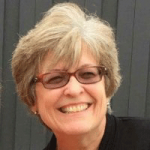 Jeanne Heid-Grubman has worked in the field of aging for over 42 years and presented numerous times on issues of person-centered care, culture change, and dementia. She was a manager in assisted living for over 11 years and is currently a skilled care administrator in a retirement community where she is working with her team to convert a traditional/institutional setting to a more person-centered environment. She previously held the position of Director of Education and Outreach at the national office of The Alzheimer’s Association and served on the Pioneer Network Board for 6 years (2011 – 2017), chairing the education committee for many of those years.
Jeanne Heid-Grubman has worked in the field of aging for over 42 years and presented numerous times on issues of person-centered care, culture change, and dementia. She was a manager in assisted living for over 11 years and is currently a skilled care administrator in a retirement community where she is working with her team to convert a traditional/institutional setting to a more person-centered environment. She previously held the position of Director of Education and Outreach at the national office of The Alzheimer’s Association and served on the Pioneer Network Board for 6 years (2011 – 2017), chairing the education committee for many of those years.
Intensive 11
Preferences for Everyday Living Inventory (PELI) advanced Bootcamp: Strategies for Communicating Resident/Client Important Preferences across Care Teams, Volunteers, and Families
Guides:
Karen Eshraghi, Quality Improvement Project Manager, Abramson Center for Jewish Life
Victoria Crumble, Director of Recreation, Abramson Center for Jewish Life
Alexandra Heppner, Project Manager, Miami University
Governor’s Square 10
In this interactive workshop, participants will learn how to communicate data obtained from the Preferences for Everyday Living Inventory (PELI) to enhance person-centered care in the nursing home and assisted living settings. First, we will share strategies for integrating preferences into care plans. Second, we will share resources and a process for communicating resident preferences through Preferences for Activity and Leisure (PAL) cards. Finally, we will highlight quality improvement initiatives for assisting organizations with PELI implementation, including a one-page document that clearly outlines an individual’s most important preferences, in an easy to read template, allowing preference information to be more accessible to front-line staff.
Objectives:
- Discuss ways of integrating important preferences into care planning.
- Provide instruction about how to communicate resident/client preferences for leisure and recreation via PAL cards.
- Provide instruction about how to develop a quality improvement initiative for person-centered care.
 Karen Eshraghi, MSW, received her Bachelor’s in Social Work from Spalding University and her Master’s in Social Work from Temple University. In Mrs. Eshraghi’s three-year tenure as project manager for a NIH-study “Assessing the Preferences for Everyday Living in the Nursing home” (2011-2014) she developed expertise in the assessment, training, and measurement of important preferences of nursing home residents. She was a contributing author on multiple publications related to person-centered care and has provided numerous presentations on this topic.
Karen Eshraghi, MSW, received her Bachelor’s in Social Work from Spalding University and her Master’s in Social Work from Temple University. In Mrs. Eshraghi’s three-year tenure as project manager for a NIH-study “Assessing the Preferences for Everyday Living in the Nursing home” (2011-2014) she developed expertise in the assessment, training, and measurement of important preferences of nursing home residents. She was a contributing author on multiple publications related to person-centered care and has provided numerous presentations on this topic.
As the Director of Recreation for a skilled nursing home serving 324 residents, Victoria Crumbie is responsible for continued successful implementation of the PELI. She provides training and on-going support to staff to ensure competency in facilitating the PELI interview and coordinates communication with family or proxy responders. Ms.Crumbie also works closely with the Quality Improvement and Research departments on new innovations to incorporate resident preferences into the care plan process and enhance communication of preferences across various disciplines.
Alexandra Heppner is currently the Project Manager for the PELI-Can Project tasked with assisting Ohio nursing home providers implementing the Preferences for Everyday Living Inventory (PELI). She communicates with nursing home providers to identify barriers and facilitators of PELI implementation and manages the projects “helpline” to respond to provider inquiries. Ms. Heppner also assists with the development of training videos and tip sheets to aid providers. Additionally, she manages the project’s social media accounts and electronic newsletter for dissemination of implementation tips, updates, and related information.
Intensive 12
Bottom up Culture Change through Regenerative Community Development
Guides:
Barry Barkan, Director, Live Oak Institute
Governor’s Square 17
Drawing on over 40 years of experience facilitating healing and empowering Regenerative Communities in settings where elders live and gather, this intensive will be in two parts. Part One will focus on cultivating the vision, skills, role, and qualities involved in being a loving, resilient and successful changemaker whatever your role within the organization. Part Two will launch you on the path to creating a durable, empowering elder-centered community meeting as a vehicle for organizational and personal transformation.
Objectives:
- To help participants see community development as intrinsic to creating a meaningful, engaging quality of life for elders and people who work with them.
- To provide the fundamentals to enable participants to add the role of community developer to the way they perceive their roles within their organizations.
- To provide the fundamentals for accelerating culture change in their organization through the development of an elder center community meeting.
In 1977, Barry Barkan, along with his wife Debby, developed the Live Oak Regenerative Community with the stated intention of transforming the culture of places where elders live and gather by promoting role, meaning, and empowerment in the decisions that impact their lives. For 17 years they operated the Live Oak Living Center as a nationally recognized model for the creation of a loving and empowering community in a long-term care home. In 2011 they brought the Regenerative Community to one home in Israel. Today there are more than 130 residential and day care settings pursuing culture change by participating in Kehila Tzomachat, the Regenerative Community in Israel. They are currently working on developing the Elders’ Guild for people in the baby boom and earlier generations to engage their wisdom and champion future generations.

